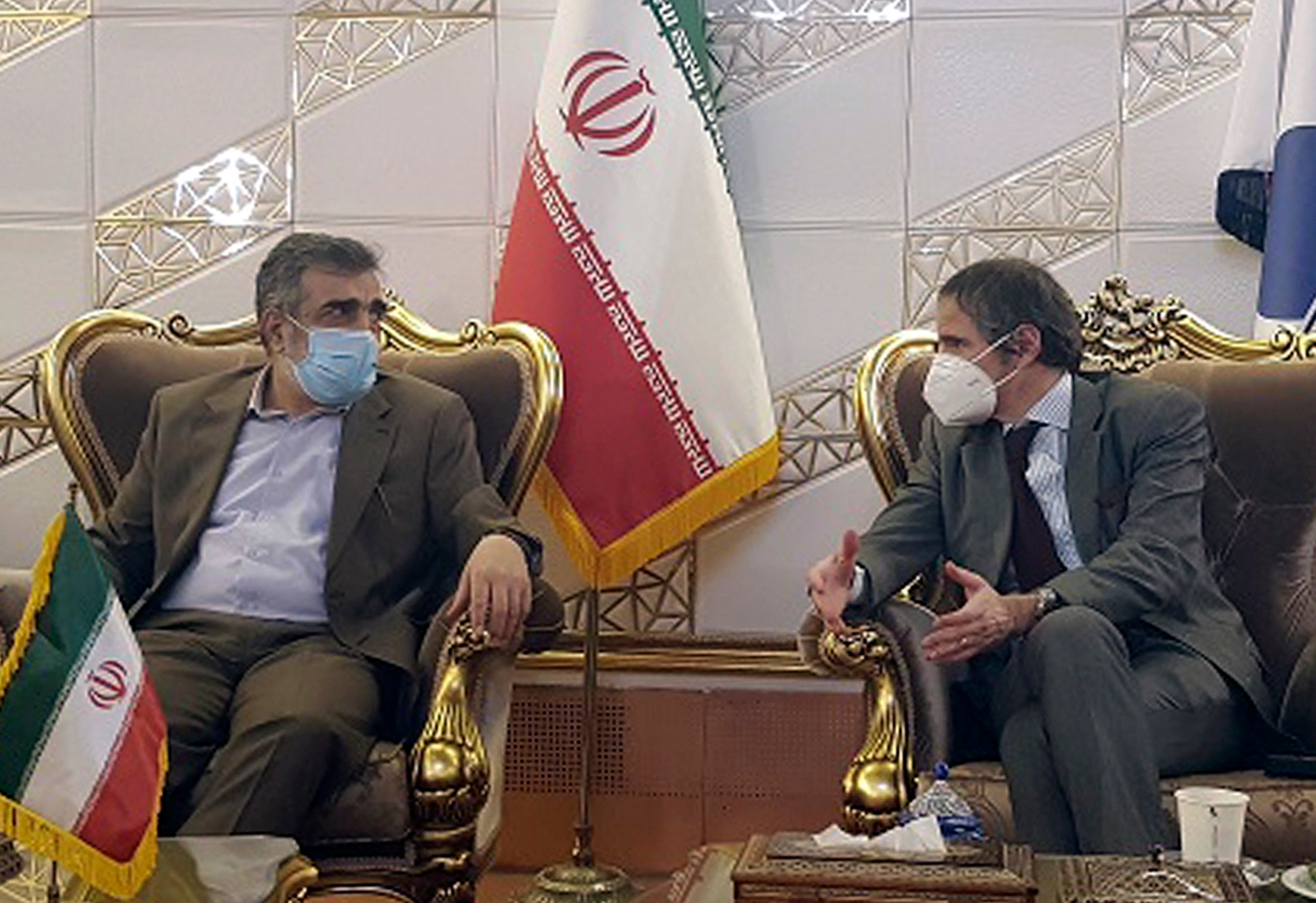State TV: Iran imposes curbs on UN nuclear inspections
State TV says Iran officially has begun restricting international inspections of its nuclear facilities, a bid to pressure European countries and U.S. President Joe Biden's administration to lift economic sanctions and restore the 2015 nuclear deal

Your support helps us to tell the story
From reproductive rights to climate change to Big Tech, The Independent is on the ground when the story is developing. Whether it's investigating the financials of Elon Musk's pro-Trump PAC or producing our latest documentary, 'The A Word', which shines a light on the American women fighting for reproductive rights, we know how important it is to parse out the facts from the messaging.
At such a critical moment in US history, we need reporters on the ground. Your donation allows us to keep sending journalists to speak to both sides of the story.
The Independent is trusted by Americans across the entire political spectrum. And unlike many other quality news outlets, we choose not to lock Americans out of our reporting and analysis with paywalls. We believe quality journalism should be available to everyone, paid for by those who can afford it.
Your support makes all the difference.Iran officially has begun restricting international inspections of its nuclear facilities, state TV reported Tuesday, a bid to pressure European countries and U.S. President Joe Biden s administration to lift economic sanctions and restore the 2015 nuclear deal.
The state TV report gave little detail beyond confirming that Iran had made good on its threat to reduce cooperation with International Atomic Energy Agency inspectors.
Iran has said it plans to cease its implementation of the “Additional Protocol,” a confidential agreement between Tehran and the IAEA reached as part of the landmark nuclear accord that grants the U.N. inspectors enhanced powers to visit nuclear facilities and watch Iran’s program.
It remains unclear exactly how access will be limited. Iranian Foreign Minister Mohammad Javad Zarif said the IAEA would be blocked from accessing its network of surveillance cameras at nuclear sites. The Atomic Energy Organization of Iran, Tehran’s civilian nuclear agency, has promised to keep the footage for three months, then hand it over to the IAEA — but only if granted sanctions relief.
Nearly three years ago, former U.S. President Donald Trump unilaterally withdrew America from the nuclear accord and reimposed sanctions on Iran that have crippled its economy.
To ramp up pressure on the Biden administration, Iran has announced gradual violations of the 2015 agreement. Over recent weeks, Iran has started enriching uranium up to 20% purity, a technical step away from weapons-grade levels. It also has begun spinning advanced centrifuges and producing uranium metal, a component of a nuclear warhead.
On Monday, Supreme Leader Ayatollah Ali Khamenei signaled Iran would refuse to capitulate to U.S. pressure over its nuclear program. Khamenei said that Iran could enrich uranium up to 60% purity if necessary, but reiterated the country forbids nuclear weapons. Tehran has long insisted that its nuclear program is for peaceful purposes, such as power generation and medical research.
The escalation Tuesday followed IAEA Director-General Rafael Grossi's emergency weekend trip to Tehran to negotiate the inspection restrictions. As part of a temporary deal, Grossi said the agency would maintain the same number of inspectors on the ground.
But Iran's curbs would affect inspectors' ability to conduct so-called “snap” inspections of nuclear sites, Grossi said. Iran blocking access to IAEA cameras also means the agency can’t monitor Iranian actions when those inspectors aren’t physically at a site.